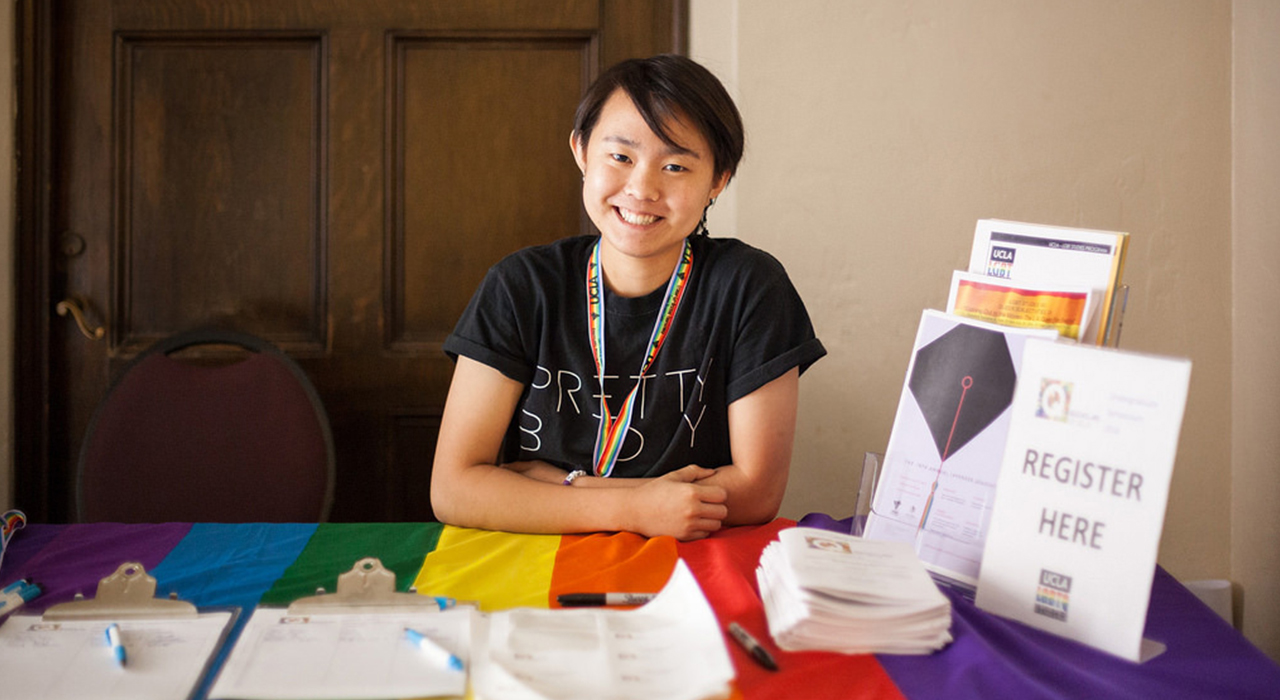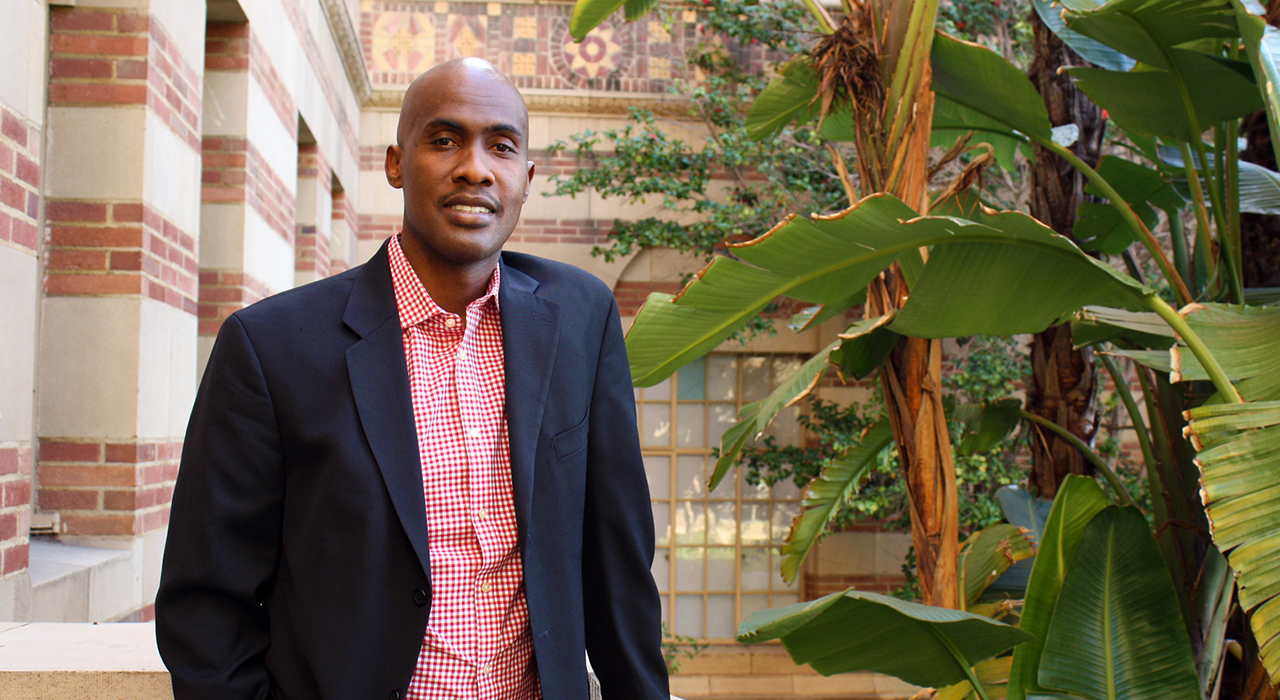
In 1960, the University of California made a promise.
California’s Master Plan for Higher Education promised that anyone from anywhere in the state could, if they worked hard enough, get a bachelor’s degree from a world-class university.
This revolutionary idea opened the doors of opportunity to millions of Californians, and became a model of higher education for the rest of the world.
Throughout our history, UCLA has kept this promise of opportunity. In 1969, UCLA opened some of the first ethnic research centers in the nation, establishing centers in African American, Chicano, American Indian and Asian American studies. Our alumni have broken down barriers in many fields, including Jackie Robinson, the first African American in Major League Baseball; Anna Lee Fisher, NASA astronaut and the first mother in space; Ralph Bunche, the first person of color to win a Nobel Peace Prize. Today, according to The New York Times, UCLA admits more low- and middle-income students than any other elite university in the country.
At UCLA, we draw our students, faculty and staff from the whole of society. Equal opportunity is not only a promise we keep — it’s who we are and what makes us one of the nation’s top-ranked research universities. And with our groundbreaking research and service, we extend this promise of access and opportunity to people all over the world.
Keeping the promise of an affordable education
For too many young people and their families, the cost of higher education is a formidable barrier. For aspiring doctors, the cost of medical school can be particularly daunting.
Will Sheppard had offer letters from medical schools around the country. But when he sat down to figure out how to finance his education, he was overwhelmed. “Talking to my parents, we couldn’t afford any school, to be honest,” he remembers. Sheppard grew up in South Los Angeles; his dad is a janitor, his mom a bookkeeper.
“Then, out of nowhere,” Sheppard says, “The dean called and told me I was chosen for the Geffen Scholarship.” The merit-based David Geffen Medical Scholarship program provides a full ride to the David Geffen School of Medicine at UCLA for up to 20 percent of entering students. “I was so overwhelmed with joy, I just sat there in silence,” Sheppard says. “I remember him asking, ‘Are you there?’”
The first class of Geffen Scholars graduated in June 2017. Freed from the enormous burden of medical school debt, Geffen Scholars have the opportunity to practice the kind of medicine that inspired them to become doctors in the first place. Sheppard plans to practice medicine in his hometown South L.A. community.
The Geffen Scholarship is one of many financial assistance programs on campus. The majority of UCLA students receive some form of assistance — in fact, 45 percent of undergraduate students pay no tuition at all. These grants and scholarships ensure that UCLA remains accessible to the best and brightest students, no matter their income, race, creed, gender or sexual orientation.
Expanding the field of study to include us all
In the UCLA College of Letters and Science, an LGBTQ Studies Ph.D. program is in the works. Alicia Gaspar de Alba, the chair of LGBTQ Studies, hopes the program will accept its first cohort of students in Fall 2018, making it the first such program in the nation.
It won’t be the first time UCLA has pioneered in the field. UCLA has sponsored LGBTQ research for over 50 years, longer than almost any other American university. And UCLA’s Queer Graduate Student Conference is the oldest interdisciplinary queer research conference in the country.
UCLA’s LGBTQ Studies program celebrates its 20th anniversary this fall. “These spaces become sacred,” says Gaspar de Alba. “Especially for young students who are just coming out. These classes become places where they can talk about their own lives and issues but also truly learn to understand others.”
In characteristic Bruin fashion, students in the LGBTQ studies program work directly with the community. At local nonprofit Project One, Bruin interns mentor, befriend and advise queer youth, helping those feeling isolated gain access to vital resources.
Deepening the talent pool
Bruin scientists and scholars have created the Internet, reshaped our understanding of the universe and revolutionized energy consumption. To take on these complex challenges, Bruins know that our research programs must be accessible to the most talented people in the world.
And there’s perhaps no greater challenge than climate change.
UCLA Associate Professor Aradhna Tripati, the daughter of immigrants from Fiji, is one of the world’s preeminent climate scientists and a leader at UCLA’s Institute of the Environment and Sustainability. To open the door for others, Tripati and her colleagues launched the Center for Diverse Leadership in Science. The institute — the first of its kind — works in communities, K-12 schools, and on campuses.
Creating opportunity in the field of environmental science, Tripati hopes to empower a new generation of scientific visionaries, whose unique perspectives and skills will have a profound impact on us all.
Changing the narrative, offering opportunity
Tyrone Howard, Director of UCLA’s Black Male Institute, was tired of the negative depictions of African-American and Latino males in the media.
These negative narratives — along with decades of destructive policies — have stripped a disproportionate number of young men of opportunity, limiting access to housing, education, jobs and the right to vote. Howard says, “We’re so locked in on the negative. I thought to myself, why don’t people talk about people like me and my peers?”
In December 2016, his team published a report called “The Counter Narrative.” The report tells brighter stories of young black and Latino students thriving in their homes, schools, and communities, and analyzes the factors that contributed to their success.
The report sparked debate around the U.S. Now, Howard hopes the report and future research on the subject could lead to public policy, programs and legislation that give more young men the chance to write their own success stories.
Howard and the Black Male Institute also work directly with community-based organizations, policymakers and students, helping to propel black male youth to college and prepare them for success in academia and professional life.
For Optimists like Tyrone Howard, keeping the promise of opportunity isn’t an obligation. It’s our greatest source of strength. We welcome the best and brightest here at UCLA, and we work tirelessly to open the doors of opportunity to people all over the world.

